ジャパニーズスタディーズ担当教員&研究
ジャパニーズスタディーズ担当教員紹介
白 迎玖(BAI Yingjiu)
bai[at]sfc.keio.ac.jp
最終学歴
慶應義塾大学大学院政策・メディア研究科博士課程修了。博士(政策・メディア)。
Ph.D. in Media and Governance (Keio University)
専門分野
地球温暖化予測データの応用研究、都市熱環境計測・シミュレーション、地理情報システム(GIS)
Regional Climate Change Adaptation Planning, Urban Heat Island Mitigation, Urban Environmental Management, Geographical Information System (GIS)
研究活動
アジア大都市におけるヒートアイランド現象の実態解明に関する研究に従事。
「地球温暖化予測データの自治体適応策の立案への活用」を目的としたツールを開発。
BIONTINO Juljan
GAITANIDIS Ioannis
五十嵐 洋己(IGARASHI Hiroki)
小林 聡子 (KOBAYASHI Satoko)
MARTINEZ OLIVER Lisa

Lisander Martínez Oliver received her Ph.D. in International and Advanced Japanese studies in 2018 from the University of Tsukuba. Her research interests include Japanese popular culture, contemporary art, and alternative fashion subcultures. Currently, her research methods revolve around the emphasis on the popular dimension of popular culture, thus involving ethnographic approaches to fan communities, creators, etc.
lisander.mtz[at]chiba-u.jp
最終学歴
筑波大学 人文社会研究科 国際日本研究専攻 博士課程終了。博士。
Ph.D. in International and Advanced Japanese Studies, University of Tsukuba.
専門分野
日本研究、ビジュアルスタディーズ、美術史、ポップカルチャー
Japanese Studies, Visual Studies, Art History, Popular Culture
研究活動
Member of the Confederación Académica Nipona, Española y Latinoamericana
日本・スペイン・ラテンアメリカ学会 会員
Mon-Han Tsai
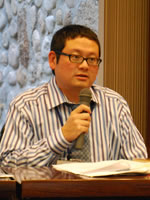
千葉大学大学院人文社会科学研究科 特任准教授
https://pub-a.le.chiba-u.jp/taisei/social-quality/mon-han-tsai (Japanese only)
研究テーマ
東アジア国際体制と政治(中世から近代までの生成・継続と断絶), 経済発展の制度的な分析 , 東アジア政治思想史(近世を中心), グローバライゼーション
専門分野
政治経済学,東アジア政治思想史,東アジア国際関係論 , 政治理論
研究活動
Commerce and Perpetual Peace 研究会(英国, ケンブリッジ大学 キングスカレッジ)メンバー, 欧州日本学学会(EAJS)会員,
アメリカ政治科学学会(American Political Science Association)会員,
アジア研究学会(The Association of Asian Studies)会員
主著
1. 『グローバル市民社会における平和、安全、そして安心』 (共著 関西大学出版会 2009年)
2. “Compressed Development in East Asia”(共著, ブラウン大学 SSCIジャーナル Studies in Comparative International Development, 近日出版予定)
3. 論文『物造神话论: 一个被加工出来的制造业意识形态』(中国語「ものづくりの神話 ―― 加工された製造業の為のイデオロギー」)(単著, 中国社会科学院日本研究所「日本学刊」, 2007年)
4. 発表論文『We are all democrats now-Confucian Political Theory in the Face of the Future』(単著, 中央研究院政治思想センター(台湾)の国際会議「Facing the Global Challenge of Politics」, 2007年)
5. 発表論文『This Culture of Ours-Politics, Confucianism and East Asian Identities』(単著, 国立成功大学政治科学部(台湾)の国際会議「East Asia as a Regional International Society-Philosophical, Historical and Political Perspectives」, 2010年)
西住奏子 (NISHIZUMI Kanako)
野村和之 (NOMURA Kazuyuki)
OHRI Richa
最終学歴
お茶の水女子大学大学院人間文化研究科国際日本学専攻博士課程終了(Ochanomizu University, Ph.D in Linguistics)
専門分野(specialization)
Critical Literacy クリティカルリテラシー /Critical Sociolinguistics 批判的社会言語学/ Race, Culture and Identity in Language Teaching 言語文化教育における人種、文化とアイデンティティ/ Representation of Race and Gender in Mass Media マスメディアにおける人種、ジェンダーの表象
現在行っている研究 Research interests
1,The politics of 'difference' : (Stuart Hall )「異」と「文化」のポリティクス
2,The 'story' behind your story:(Paolo Freire, Gayatri Spivak) 抑圧者と被抑圧者の間
3,Knowledge, Common-Sense and Power: (Michel Foucault, Edward Said,久保と竜子) 知識、常識、権力
4,The role of Active Knowledge in Language and Culture 言語文化教育のおけるアクティブ・ナレッジの形成
richaohri[at]chiba‒u.jp
陶 波 (TAO Bo)
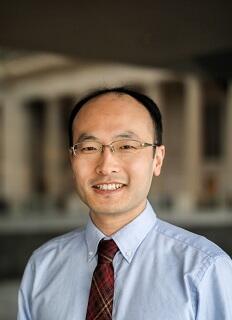
千葉大学国際未来教育基幹 特任助教
最終学歴
歴史学博士(イェール大学、2019年)
Ph.D. in History (Yale University, 2019)
専門分野
宗教と政治、キリスト教と国際関係、グローバル・ヒストリー
Religion and Politics, Christianity and International Relations, Global History
現在行っている研究
日本を代表するキリスト者であり、戦前から戦後にわたって最も世界的に名の知れた日本人の一人でもあった賀川豊彦(1888-1960)を中心に、20世紀前半の宗教と社会運動のグローバルな広がりについて研究しています。
My research centers on Kagawa Toyohiko (1888-1960), a Christian leader and social reformer who was one of the most internationally well-known Japanese figures in the prewar and immediate postwar periods. Through him, I examine the spread and influence of religious and social movements in the mid-twentieth century from a global perspective.
担当科目
<普遍教育>
・宗教とグローバリゼーション
・社会運動から見た日本と世界(JS)/ Japan and the World as Viewed from Social Movements (JS)
<国際教養学部>
・日米近現代交流史
・東アジア地域論(オムニバス科目)
発表論文など
Bo Tao, “Laying Down the Law of Love: The 1936 American Tour of Toyohiko Kagawa” (co-authored with Greg Robinson), Discover Nikkei, March 2021 [Link]
Bo Tao, “The Chrysanthemum and the ‘Saint’: Kagawa’s Statue in the Washington National Cathedral,” Church History 89, no. 3 (September 2020): 567-591. [Link]
Bo Tao, “The Battlefield Experience of Japanese Soldiers in the Asia-Pacific War,” The Asia-Pacific Journal 18, no. 19-2 (Oct. 1, 2020).
Original text: 吉田裕「アジア・太平洋戦争の戦場と兵士」『岩波講座 アジア・太平洋戦争5―戦場の諸相』(岩波書店、2006年), pp. 59-86. [Link]
陶波「社会学と社会的福音――IPR結成前の加州人種問題サーベイをめぐる学界とキリスト教界」、海老澤衷・近藤成一・甚野尚志編『朝河貫一と人文学の形成』(吉川弘文館、2019年)、pp. 231-57.
Bo Tao, “The Peacemaking Efforts of a Reverse Missionary: Toyohiko Kagawa before Pearl Harbor,” International Bulletin of Missionary Research 37, no. 3 (July 2013): 171-76. [Link]
デジタル・ストーリーマップ
Bo Tao, “Kagawa Toyohiko: The Making of a Global Christian Pacifist,” Esri ArcGIS StoryMaps web platform, January 2019, [Link]
bo.tao[at]chiba-u.jp
過去の担当教員
BAHARUDDIN Zafri(2015~2016年度)
Zafri Baharuddin is a PhD candidate at Chiba University currently researching synthetic aperture radar systems for remote sensing, working specifically in antenna design at the Center for Environmental Remote Sensing. This semester he will be teaching the basics of remote sensing in the course Remote Sensing and Its Applications (JS), リモートセンシングとその応用(JS). He has had previous experience in electrical/electronics engineering, robotics and mechatronics while working in Universiti Tenaga Nasional, Malaysia, as well as a Masters in mechatronics engineering from Universiti Teknology Malaysia.

zafri@chiba-u.jp
CHOZICK Matthew(2017~2022年度)
Matthew Chozick's research and teaching focuses on modern Japan, particularly on its pop culture, literature, translation and cultural exchange policies of the government. Chozick also contributes creatively to Japanese culture as a book publisher, a writer, a television personality, an actor, and as a government consultant. For detailed information about Chozick's courses at Chiba University, please reference his uploaded course syllabi. Chozick is happy to be contacted by students with any questions. You can find out more about projects Chozick is involved with by visiting his homepage, Twitter, or Instagram.
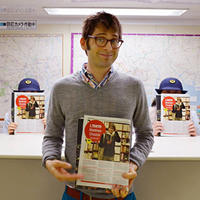
専門は日本の現代文化。特に日本のポップカルチャー、文学、トランスレーション・スタディーズ、政府の文化政策などに関心があり、日本と海外の文化交流と、それに伴う翻訳の歴史を研究している。経営する出版社では海外の作家を通じて日本のインディーズ音楽やアートなど様々な文化を世界中へ発信。また自身もライター、タレント、俳優、政府の機関コンサルタントとして、日本文化に創造的に貢献している。 講義内容の詳細については、アップロードされたコースのシラバスを参照してください。不明な点があれば、お気軽にお問い合わせください。 *マシュー・チョジックが関わっているプロジェクトの詳細は、ホームページ、Twitter、Instagramを参照してください。
GALBRAITH Patrick W.(2016年度)
Patrick W. Galbraith received his PhD in Information Studies from the University of Tokyo. Since 2004, he has been conducting long-term ethnographic fieldwork in Akihabara in eastern Tokyo. He is the author and co-editor of many books on Japanese popular culture, most recently "The Moe Manifesto" (Tuttle, 2014) and "Debating Otaku in Contemporary Japan" (Bloomsbury, 2015). In summer 2016, he will be teaching Japanese Popular Culture A and B at Chiba University.

pwg2[at]duke.edu
GUTIÉRREZ ORTEGA José Said(2017年度)
I am a Mexican phD candidate in Biology in the Graduate School of Sciences of Chiba University. As a scientist, I believe that basic science is important for the progress of the human societies, but applied science is crucial for their maintenance. Thus, an ultimate labor of scientists should be to transmit and promoting the critical and scientific thinking to a broad public.
I am currently dedicating to research the evolution and conservation of biodiversity, with emphasis on plant genetics and systematics. I have experience in the study of botany, zoology and molecular biology. Also, I have worked on the divulgation of science for public with non-scientific formation. This semester, I will be teaching the courses Fascinating Aspects of Applied Sciences A and B (JS).
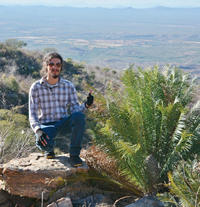
千葉大学の生物学の博士課程の学生です。メキシコ人です。私は基本的な科学は人間社会の進歩にとっても重要だと考えていますが、応用科学はその維持のために重要です。したがって、科学者の究極的 ない労働は、批判的で科学的な考え方を広範な国民に、促進することであるべきである。
現在、植物遺伝学や系統発生に重点を置いて、生物多様性の進化と保全を研究しています。 植物学、動物学、分子生物学の経験があります。 私は非科学者のための科学の普及にも取り組んできました。 この学期には、応用科学AとB(JS)の魅力的な側面を教えます。
Academic background:
I obtained my Bachelor's studies in the University of Sonora, Mexico, in 2010. I moved to Chiba University in 2012 as a research student, and completed the master courses in 2015. This semester, I am starting my third year of doctoral courses. During my stay in Japan, I have obtained support from the Ministry of Education, Culture, Sports, Science and Technology (2012-2016) and the Japan Society for the Promotion of Science (2016-now).
2010年にメキシコのソノラ大学で学士号を取得しました。研究生として、2012年に千葉大学に移り、2015年に修士課程を修了しました。今年は博士課程の第3学年を開始しました。 日本滞在中、文部科学省(2012-2016)と日本学術振興会(2016 - 現在)の支援を受けました。
Hobbies:
Rock music, hiking, camping, video games, internet, cartoons
ロック音楽、ハイキング、キャンプ、ゲーム、インターネット、アニメ。
Contact:
Josesgo[at]chiba-u.jp
尾張 聡子 (OWARI Satoko)(2018年度)
I am Japanese Ph.D candidate in Geochemistry in the Graduate School of Sciences of Chiba University. My motivation of my class is to promote having science (especially earth science) view point in our life. For example weather forecast, earthquake and cosmetics are deeply involved with earth science.Like that, we will find and discuss sciences relating to our life.
現在,私は千葉大学理学研究科の博士課程に在籍しています. 私の授業では身近な科学をテーマに私たちの生活の中に取り込まれている科学(特に地球科学の観点から)を見つけ出すことを目的としています.例えば私たちの生活には,天気予報,地震,化粧品などをはじめ様々な地球科学が密接に関わっていて,それら科学の知識が私たちの生活に与える良い側面と悪い側面など,様々な視点からディスカッションしていきます.
owari.stk[at]chiba‒u.jp
PUTRI RATIH FITRIA(2014年度)
Latest Academic Qualification
Master of Planning and Management for Coastal area and Watershed. Faculty of Geography, Gadjah Mada University (Indonesia), Joint Degree with Chiba University (Japan).
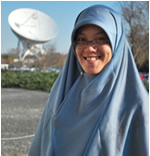
Disciplinary background
environmental science, geomorphology, geology, differential synthetic aperture radar (SAR) applications and disaster monitoring using remote sensing.
Current research
monitoring land subsidence and landslide hazard using differential interferometric synthetic aperture radar data observed with TerraSAR-X & ALOS PALSAR.
桜井良 (SAKURAI Ryō)(2014年度)
Latest Academic Qualification
Doctor of Science (Interdisciplinary Ecology Major)
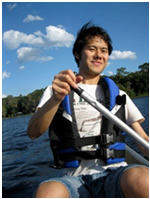
Disciplinary Background and Current Research Subject
I studied law and politics in my undergraduate school of Keio University. I then studied wildlife management, conservation biology, environmental education and social psychology in the graduate school of University of Florida, in the United States. My research interests include understanding how we can create a society in which we live in harmony with nature. My current research subjects are understanding factors affecting people's willingness to participate in nature conservation activities, evaluating education programs in wildlife management, and developing citizen science project in Japan.
TUYEN Nguyen Duc(2014年度)
My name is Nguyen Duc Tuyen and I am from Vietnam. I am working at Shibaura Institute of Technology as a postdoctoral fellow.
I received a Bachelor Degree in Electric Power System from Hanoi University of Science and Technology (HUST), Vietnam in 2006. After that, I moved to Japan to obtain my Master's Degree in 2009 and Doctoral Degree in 2012 in electrical engineering from the same university, which is Shibaura Institute of Technology. My research interests include modeling and control of distribution power systems and dispersed power generation, and power quality.
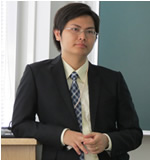
The title of my course is Japanese Studies 8: Sustainable Power System .
Mirza Muhammad WAQAR(2018~2020年度)
Mirza Muhammad Waqar is from Pakistan and currently he's Ph.D. scholar at Josaphat Microwave Remote Sensing Laboratory (JMRSL), Center for Environmental Remote Sensing (CEReS), Chiba University. His Ph.D. research is focused on "Forest biophysical parameters estimation using Polarimetric-Interferometric SAR (Pol-InSAR)". He did Bachelor degree in Space Sciences from The University of Punjab, Pakistan in 2010 and Master degree in Remote Sensing and GIS from National University of Sciences and Technology (NUST), Pakistan. This semester he will be teaching basis of Remote Sensing and its application in "Remote Sensing: Viewing Japan from Space" course. Since 2011 Mr. Waqar is teaching subjects related to Remote Sensing and Satellite Image Processing. He has worked in collaboration with various well known international organizations i.e. ICIMOD, RADI (UCAS), SUPARCO etc. Mr. Waqar is currently author of 26 research papers. His research interests are optical and synthetic aperture radar image processing for forest biophysical parameters estimation.
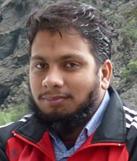
mirzawaqar[at]chiba-u.jp
Personal webpage:
https://mirzawaqar.wordpress.com/Selected Publications:
1,Naeem, S., Cao, C., Waqar, M. M., Wei, C., & Acharya, B. K. (2018). Vegetation role in controlling the ecoenvironmental conditions for sustainable urban environments: a comparison of Beijing and Islamabad. Journal of Applied Remote Sensing, 12(1), 016013.
2,Qazi, W. A., Baig, S., Gilani, H., Waqar, M. M., Dhakal, A., & Ammar, A. (2017). Comparison of forest aboveground biomass estimates from passive and active remote sensing sensors over Kayar Khola watershed, Chitwan district, Nepal. Journal of Applied Remote Sensing, 11(2), 026038.
3,Baig, S., Qazi, W. A., Akhtar, A. M., Waqar, M. M., Ammar, A., Gilani, H., & Mehmood, S. A. (2017). Above Ground Biomass Estimation of Dalbergia sissoo Forest Plantation from Dual-Polarized ALOS-2 PALSAR Data. Canadian Journal of Remote Sensing, 43(3), 297-308.
4,Kausarian, H., Sri Sumantyo, J. T., Kuze, H., Aminuddin, J., & Waqar, M. M. (2017). Analysis of Polarimetric Decomposition, Backscattering Coefficient, and Sample Properties for Identification and Layer Thickness Estimation of Silica Sand Distribution Using L-Band Synthetic Aperture Radar. Canadian Journal of Remote Sensing, 43(2), 95-108.
5,Y. Izumi, S. Demirci, M. Z. Baharuddin, M. M. Waqar, and J. T. Sri Sumantyo. (2017). Analysis of circular polarization backscattering and target decomposition using GB-SAR. JPIER. (Accepted)
6,Han, X., Yao, F., Zhang, J., Waqar, M. M., Zha, Y., & He, J. (2016). Haze detection by using modified normalized difference haze index in Beijing, Tianjin, and Hebei province. Journal of Applied Remote Sensing, 10(2), 025025-025025. doi:10.1117/1.JRS.10.025025
7,Mumtaz, R., Palmer, P. L., & Waqar, M. M. (2014). Georeferencing of UK DMC stereo-images without ground control points by exploiting geometric distortions. International Journal of Remote Sensing, 35(6), 2136-2169.
8,Waqar, M.M., Mirza, J.F., Mumtaz, R., Hussain, E. (2012) Development of New Indices for extraction of Built-up area & Bare Soil from Landsat Data. International Journal of Remote Sensing and Geoscience. URL: http://www.omicsonline.org/scientific-reports/srep136.php
9,Waqar, M. M., Mirza, J. F., Mumtaz, R., & Hussain, E. (2012). Development of new indices for extraction of built-up area & bare soil from landsat data. Open Access Sci. Rep, 1(1), 4.
吉田 修二(YOSHIDA Shūji)(2016年度)
研究
千葉大学で開講しているジャパニーズ・スタディーズ(JS)を始めとする教養展開科目(国際コア関連)の中には、言語的文化的背景の多様な学生が受講することを前提とした科目が多数あります。
協働学習は、こうした参加者の多様性・差異を肯定的に捉え、互恵性の観点から活用することを目指す学習形態で、学生同士の対話のプロセスを重視するものです。
目的・目標の異なるそれぞれの授業に意味のある協働学習を取り入れるためには、協働学習に参加する学生の学びや葛藤について理解を深め、授業の方法、成果、課題を検証する必要があります。
科学研究費助成事業(挑戦的萌芽研究)の採択課題「参加者の言語的文化的多様性を前提とした共同授業に関する縦断的研究」(平成26-27年度、研究課題番号 JSPS26580091)では、このような課題に取り組む共同研究を実施しました。
共同研究に参加しているのは以下の教員です(2016年3月31日現在)。
吉野文、和田健、西住奏子、小林聡子、ガイタニディスヤニス
雑誌論文
『気づき』を記述すること―協同学習としての『座談』と『書くこと』に関する覚書
和田健
【概要】本稿では、受講者があるテーマをもとに自身の考えをグループ内で話していく作業(ここでは「座談」ということばで表現したい)のあとにその成果を振り返ることを目的とした 「書く」作業を対象とし、受講者が何を発見し、そして次の議論につなげていくかを見つけていく方法の可能性について書き記しい。具体的にはグループによる話し合い、意見交換そして座談の過程を自らが振り返る作業を通じて書かれたものを通じて、授業を受けた学生がいかに座談の内容をフィードバックしているかについて、筆者は考えたいのである。あくまで筆者の授業実践によるケーススタディであり、今後のPBLを意識した協同学習において、「書くこと」にどのような可能性があるかを考察する覚書として記していきたい。
和田健(2015)「『気づき』を記述すること―協同学習としての『座談』と『書くこと』に関する覚書」千葉大学国際教育センター編『国際教育』第8号、p.1-18
『二言語併用ゼミ』の場面における参加者の言語使用―座談の分析に関する一試論―
吉野文・西住奏子
【概要】本稿では、「二言語併用ゼミ」における参加者の言語使用の実態を探るために、「異文化交流演習」の授業を取り上げ、グループワーク(座談)の談話を会話分析の手法で分析した。対象としたデータでは、日本人の参加者は英語に対して、留学生の参加者は日本語に対して強い志向を持っていたが、日本語のあいづち、コードスイッチングによる発話内容の繰り返し、他言語のリソースなどを活用しながら、参加者が談話を協働的に進行させている様子が見られた。また、コミュニケーションの問題が起きると、原因に応じて日本語、英語の両方を用いて解決が図られていた。参加者の言語能力が多様な「二言語併用ゼミ」のグループワークでは、言語使用の実態も学生の組み合わせによって異なる様相を見せるものと予想される。言語使用に関わる要因や共通する規範を探っていくことが今後の課題である。
吉野文・西住奏子(2015)「『二言語併用ゼミ』の場面における参加者の言語使用―座談の分析に関する一試論―」千葉大学国際教育センター編『国際教育』第8号、p.35-50
『日本』を題材とした協働学習の仕掛け
ガイタニディスヤニス・小林聡子・西住奏子・吉野文・和田健
【概要】本稿は、筆者ら5名が共同研究として取り組んだ、参加者の言語的文化的多様性を前提とした協働学習に関する実践研究の結果を報告するものである。「日本」を題材とする4つの学部生向け教養科目(「時事から日本を考える」、「現代日本の宗教と社会」、「バイリンガリズムと言語学習」、「異文化交流演習」)を取り上げ、担当教員がどのように学習の場を設定したか、またその結果どのような気づき、学びがあったかを談話データ、コメントシート、フォローアップインタビューなどをもとに分析した。本研究では、協働学習を学生間の対話のプロセスを重視する学習形態を表すものとして捉え、知識、言語、経験など参加者の多様性・差異を肯定的に見なすとともに、そこから生じる学習過程における葛藤にも注目した。「座談」、「協働論証」と名付けた対話の手法、対等な参加を促すための仕掛けの必要性と具体例を紹介するとともに、今後の課題について述べた。
ガイタニディスヤニス・小林聡子・西住奏子・吉野文・和田健(2016)「『日本』を題材とした協働学習の仕掛け」千葉大学国際教育センター編『国際教育』第9号
本文PDF学会発表
『日本』を題材とした協働学習の仕掛け
吉野文・和田健・西住奏子・小林聡子・ガイタニディスヤニス
【概要】グローバル化の進む現在、自らの相対的な立ち位置を知り、論理的、多元的な考え方を習得することは、大学教育の大きな目標となっている。本セッションで取り上げるのは、いずれも「日本」を題材とし、社会的文化的背景の異なる学生の協働学習を取り入れた一般教養科目である。日本で学ぶ学生に共通するテーマを核として、多様な学生間の対話の場を設けることにより、上記の目標に合致した学びを生み出すことが意図されている。課題提供者は、教室におけるグループ活動の談話データ等を用い、そこでどのような学びが起こっていたか、各授業における教員の仕掛けがどのように機能したかを具体的に検証する。4つの話題提供および質疑応答をそれぞれ25分ずつ行った後、こうしたアプローチによる仕掛け作りの可能性と留意点について参加者とともにディスカッションを行う。
吉野文・和田健・西住奏子・小林聡子・ガイタニディスヤニス「『日本』を題材とした協働学習の仕掛け」第20回大学教育研究フォーラム、2015年3月14日、京都大学
予稿集PDF日英二言語併用科目における留学生の言語運用の変容―初中級レベルの日本語学習者の座談の分析―
西住奏子・吉野文
【概要】千葉大学国際教育センターでは、社会的文化的背景、言語的背景の異なる留学生と日本人学生が、双方向に学び理解を深めることを促す「協働学習」を意図した科目を多数開講 している。中でも、英語・日本語を参加者の共通言語とする「二言語併用科目」は、語学力に不安があっても、二言語を使って助け合いながら学ぶ授業と位置付けることができ、 学習言語を運用する場と捉える学生も多い。本発表は、そのうち西住が担当する二言語併用科目の「異文化交流演習」において、コース前半と後半に収集した2つの会話データに注目し、留学生の二言語による会話運用能力に関する変容について論じる。「異文化交流演習」は、毎回異なる日本社会、日本文化の事象を取り上げ、留学生と日本人学生が対等な立場で話し合い、話しながら考え、相手の話を聞きながら気づきを深める談話形式(座談)を中心に進めている。2014 年後期の授業で録音した同一グループの座談(日本語は初中級レベルかつ英語が母語または上級レベルの留学生2名、および日本人 学生2名)を分析したところ、コース前半の座談では、英語のみ、あるいは日本語のみで話を続けることで、誤解が生じた場面、また明らかに相手の発話が理解できなかったにも関わらず聞き返すことなく次に進む場面が見られた。一方、コース後半の座談では、日本語による発話が増え、互いの理解を確認しながらよりスムーズに相互行為が行われる様子が観察された。具体的には、日本語発話に英語を埋め込むことで、日本語話者からその部分の日本語による表現を引き出すプロセス、日本語で応答し日本人学生からの質問を増やすプロセス、さらに、あいづちを打つことで相手の発話を促すプロセスが見られた。 留学生は二言語併用の座談を通して、自身と相手の言語能力など場の状況に合わせた言語使用をすることで、相互理解を深めながら会話を進める能力を獲得していると考える。
西住奏子・吉野文「日英二言語併用科目における留学生の言語運用の変容―初中級レベルの日本語学習者の座談の分析―」日本語教育学会2015年度第8回日本語教育学会研究集会(東北地区)2015年11月21日、秋田大学
予稿集PDFDe-Racializing Japaneseness: A Collaborative Approach to Shifting Interpretation and Representation of "Culture" at a University in Japan.
Gaitanidis, I. & Shao-Kobayashi, S.
【概要】In the past decade, a series of reforms aimed at making Japanese universities more competitive on a global scale have pushed for the creation of a variety of courses that prepare students to study, volunteer, or find work abroad. Many of these courses focus on the Japanese students' ability to comprehend, debate upon, and present about Japanese culture and society to a broad audience, using the English language. Yet, in the process of conducting these courses, instructors are bound to face a question that has preoccupied research on racial homogeneity and minorities in Japan since at least the early 1990s: Who are the "Japanese" we are talking about? As most academic work on this question has shown, the word Japanese conflates notions of race, ethnicity, language, citizenship, and culture and university students frequently mix all of these associations when they are asked to talk about a specific aspect of Japanese culture. This paper focuses on the process and product of instructor-students' interactions in the framework of a collaborative learning course, called Global Project Work: Presenting About Japan in English, which the authors co-taught under the Liberal Arts curriculum of a Japanese university. More specifically, we show how, inspired by Bakhtin's polyphony and dialogism, we set up and engaged with students, encouraging them to break down the aforementioned conflation of race and culture into its constitutive components.
Gaitanidis, I. & Shao-Kobayashi, S. "De-Racializing Japaneseness: A Collaborative Approach to Shifting Interpretation and Representation of "Culture" at a University in Japan." Comparative and International Education Society 2016 Conference in Vancouver
Japanese Studies as a Liberal Arts subject: Area Studies and Cosmopolitanism in Japanese higher education,
Gaitanidis, I.
【概要】In 2012, MEXT launched the Project for Promotion of Global Human Resource Development, a five-year internationalization plan that aimed to 'overcome the Japanese younger generation's "inward tendency" and to foster human resources who can positively meet the challenges and succeed in the global field, as the basis for improving Japan's global competitiveness and enhancing the ties between nations.' The new curricula that were developed in response to MEXT's scheme theoretically pushed for the cultivation of cosmopolitan students able to talk about and critically reflect on "Japanese" culture and society, an approach that seems to reiterate what Ajurn Appadurai once identified as the advantage of an area studies education, namely 'the restoration of the primacy of the liberal-cosmopolitan ideal of discipline' (Appadurai, 1996, 35). This paper examines these new curricula from a Japanese Studies perspective, using examples of actual courses taught at a university that was the recipient of MEXT's aforementioned grant. My analysis will show that students are actually facing a combination of several conflicting discourses regarding "Japan," spanning the entire spectrum of modern ideologies, from cultural nationalism on one end, to cultural relativism on the other. This situation, however, combined with the recent emphasis on active learning in collaboration with international students, seems, in fact, to be opening the way to new applications of the Area Studies paradigm in higher education, a paradigm that, in this case, I call Critical Japanese Studies.
Appadurai, Ajurn. 1996. Diversity and Disciplinarity as Cultural Artifacts. In C. Nelson and D.O. Gaonkar (eds), Disciplinarity and Dissent in Cultural Studies. New York: Routledge.
Gaitanidis, I. "Japanese Studies as a Liberal Arts subject: Area Studies and Cosmopolitanism in Japanese higher education," BAJS/IMC Conference, 29-31 July 2016, Hokkaido University.
Not who you are, but what you do: Collaborativity beyond language and culture,
Gaitanidis, I. & Shao-Kobayashi, S.
【概要】In recent years, the internationalization of Japanese higher education has led to the implementation of several types of English-medium instruction courses, which are often part of a broad, liberal arts or general education curriculum (Brown 2014). Combined with the top-down push for more students to complete long or, more frequently, short-term study abroad programs (see the 300,000 foreign students by 2020 MEXT campaign), Japanese universities have witnessed an increase in the number of programs that target the understanding of a "foreign" language or culture by visiting another country or by participating in summer/spring intensive workshops held in English, and which are also attended by short-term international students who come to Japan for that purpose. This paper presents a preliminary analysis of a series of short-term collaborative learning programs which aim at promoting the reflexive understanding of an academic topic using Japan as a local context. These Global Study Programs (GSP) have been organized by Chiba University since August 2013, with university partners from several countries (Vietnam, Finland, Greece, Malaysia and Germany) and are usually attended by approximately 15 students from each side. In the process of ensuring the academic quality of GSPs, despite, or rather because of the participation of students from several cultural, disciplinary and linguistic backgrounds, it was essential, in our opinion, to build a course that fosters collaborativity and goes beyond mere language or cultural understanding; in other words, a course that is on the hard side of CLIL (Bentley 2010) and offers specialized knowledge combined with cultural empathy and linguistic competency.
Bentley, Kay. 2010. The Teaching Knowledge Course CLIL Module. Cambridge: Cambridge University Press.
Brown, Howard. 2014. Contextual factors driving the growth of undergraduate English-medium instruction programmes at universities in Japan. The Asian Journal of Applied Linguistics 1(1): 50-63.
Gaitanidis, I. & Shao-Kobayashi, S. "Not who you are, but what you do: Collaborativity beyond language and culture," Japan in the World and the World in Japan: A Methodological Approach, December 3rd and 4th, 2016, Otemae University.
教養教育における協働学習の場の可視化 ―参加者の言語的文化的多様性を前提とした授業における試み―
吉野 文・西住奏子・小林聡子・ ガイタニディスヤニス
吉野 文・西住奏子・小林聡子・ ガイタニディスヤニス「教養教育における協働学習の場の可視化 ―参加者の言語的文化的多様性を前提とした授業における試み―」(ポスター発表) 、第23回大学教育研究フォーラム、2017年3月19日・20日、京都大学
予稿集PDF国際交流から協働性へ:国際協働学習授業グローバル・スタディ・プログラムを事例に
小林聡子・ガイタニディスヤニス
小林聡子・ガイタニディスヤニス「国際交流から協働性へ:国際協働学習授業グローバル・スタディ・プログラムを事例に」異文化間教育学会第38回大会、2017年6月17日~18日、東北大学
抄録原稿.pdfJapanese Studies at Chiba University,
Gaitanidis, I.
Gaitanidis, I. "Japanese Studies at Chiba University," 15th European Association of Japanese Studies International Conference 2017, pre-conference event Japanese Studies in Japan: A New Trend? 29 August 2017.

